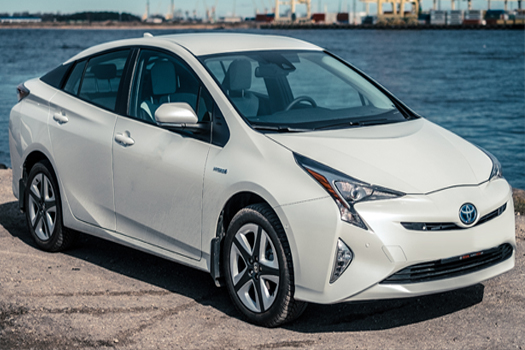

There’s no denial about the breath-taking, low-slung look of the Toyota Prius and it appeals very well to all kinds of customers across the globe. There are few players endure in the all hybrid segments of the market and are still ready to strive the Toyota Prius, the place the BMW i3 and i8, Hyundai Ioniq, and Lexus CT, are the most noticeable rivals, but when it comes to full on plugin all electric drive, there is no one can beat the models from Tesla. Tesla has taken the lead in all aspects. Why we are talking about Tesla here? Because it remains the front line partner of Toyota in manufacturing of Prius and was the supplier of battery packs. Now they have broken down in the past.
Hybrid versions of conventional cars are increasing to boom, bringing further dares to the Prius, petrol-electric spinoffs of the BMW 3 series, Ford Mondeo and Volkswagen Passat pose a risk to Toyota, as does the lesser-spotted diesel-electric by the PSA in France, it is a DS 5 hybrid. Plus there’s the inevitable reality about Toyota itself that its introduction of Toyota Auris hybrid. This instigation of small cars with hybrid powertrains has eaten away on the Prius popularity.
The first and the most important thing is that the petrol electric drivetrain has emissions as little as 70g/km of CO2 whilst on the road, it completes 0-60mph dash in just over ten seconds. Secondly, Toyota doesn’t give a room to any competitor by limiting the options in the hybrid drivetrains. From launch, Toyota Prius is supplied with a single petrol-electrical powertrain replacement engine and till date, there is only one available.
Hybrid powertrain can endow satisfactory force. There are two elements to the Prius powertrain, the principal representative being a non-turbocharged Prius 1.5-litre petrol engine. Toyota reproduced its efficiency that means it consumes much less petrol than before, as well as working extra pleasantly with the electric motor.
In time, we count on there might be an alternative for the Prius Plug-in Hybrid, but Toyota wouldn’t be drawn on the likelihood of an all-electric like Tesla does, to rival the three modes of power for the Hyundai Ioniq.
Conjointly both elements produce 121bhp and torque of 163Nm available instantly. Each the engine and the electrical motor power, the doorway wheels through a (CVT) automatic gearbox, in distinct chosen for its performance houses. Even though there’s been a larger focus to hitch additional electric power to lift acceleration that is more obvious at lower speeds.
You will feel that it accelerates really hard when cruising on the motorway and the acquainted sound of the engine revving alternatively. You’d count on is apparent – albeit extra quiet than in Priuses of the past. Push it gently – and more efficaciously – and it’s a lots calmer experience. But if you wish to push it to its limits, it has a top speed of only 131 miles per hour.